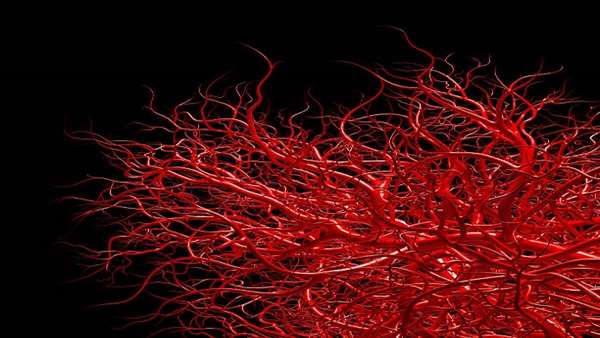Scientists generate high-quality human vascular cells through genome editing technology
Scientists from the Institute of Biophysics of the Chinese Academy of Sciences (CAS), Peking University and the Institute of Zoology of CAS have generated the worlds first genetically enhanced human vascular cells by targeting a single longevity gene, FOXO3.
Scientists from the Institute of Biophysics of the Chinese Academy of Sciences (CAS), Peking University and the Institute of Zoology of CAS have generated the world"s first genetically enhanced human vascular cells by targeting a single longevity gene, FOXO3. The study was recently published in Cell Stem Cell.
This six-year joint research effort represents the first time human vascular cell function was enhanced via gene editing technology and reveals a new mechanism for the long-lived protein FOXO3 in maintaining human vascular homeostasis.
Compared to wild type cells, FOXO3-enhanced vascular cells not only efficiently promote vascular repair and regeneration, but also effectively resist tumorigenic transformation. As a result, FOXO3 activation may provide a way to generate more effective and safer biomaterials for cell therapies.
FOXO3, an evolutionarily conserved longevity factor, functions as an important regulator to delay cellular senescence, resist various stresses and enhance cardiovascular homeostasis. Activation of FOXO3 counteracts malignant transformation of cells by promoting the expression of tumor suppressor genes and maintaining genome stability.
Transplanting cells obtained via in vitro differentiation into lesion sites promotes the regeneration of damaged tissue and restores the homeostasis and function of tissues and organs. However, safety concerns regarding stem cells, such as the risk of gene editing-associated tumorigenesis, is a major barrier to the widespread application of this technology.
In this study, using genome editing, scientists replaced two nucleotides in exon 3 of the FOXO3 gene in human cells that inhibited the phosphorylation and subsequent nuclear export and degradation of FOXO3, thus promoting the nuclear translocation of the FOXO3 protein and expression of its target genes.
FOXO3-enhanced vascular cells exhibited improved self-renewal and increased resistance to oxidative injury compared with those of wildtype cells. When tested in a therapeutic context, they promoted vascular regeneration in a mouse model of ischemic injury and were resistant to tumorigenic transformation both in vitro and in vivo.
Mechanistically, constitutively active FOXO3 conferred cytoprotection by transcriptionally downregulating CSRP1.
The findings prove the feasibility of using gene-editing strategies to obtain high-quality, safe human vascular cell grafts and make it possible to scale up and standardize the generation of such cells for therapeutic use. This study provides a promising option for future regenerative medicine.
Reference:https://medicalxpress.com/news/2019-01-scientists-high-quality-human-vascular-cells.html





ارسال به دوستان